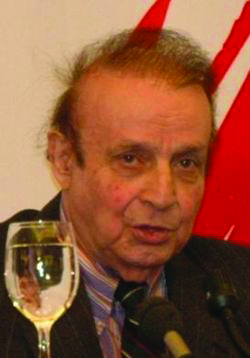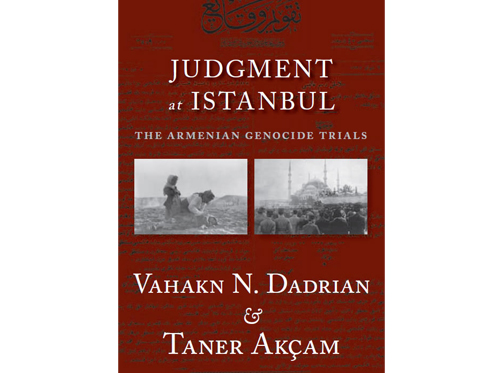GENESEO, N.Y. (Combined Sources) — Prof. Vahakn Dadrian, one of the pioneers of modern genocide studies and one of the founders of Armenian Genocide studies, died on Friday, August 2. He was 93.
Dadrian’s interest in the Armenian Genocide was not only academic; he was born in 1926 to a family in Turkey that had lost many members to the Armenian Genocide.
Dadrian first studied mathematics at the University of Berlin, after which he decided to switch to a completely different field, and studied philosophy at the University of Vienna, and later, international law at the University of Zürich. He completed his PhD in sociology at the University of Chicago.
In the 1970s, Dadrian participated in the creation of the comparative study of genocide.
He was awarded an honorary doctorate degree for his research in the field of Armenian Genocide Studies by the Armenian National Academy of Sciences, and later, in 1998, he was made a member of the Academy and honored by the President of Armenia, the republic’s highest cultural award, the Khorenatsi medal. In 1999, Dadrian was awarded on behalf of the Holy See of Cilicia the Mesrob Mashdots Medal.
The Harry Frank Guggenheim Foundation sponsored him as director of a large Genocide study project, which culminated with the publication of articles, mainly in the Holocaust and Genocide studies magazines. He was the keynote speaker at the centennial of the John Marshall Law School and delivered a lecture to the British House of Commons in 1995. He also received the Ellis Island Medal of Honor.









